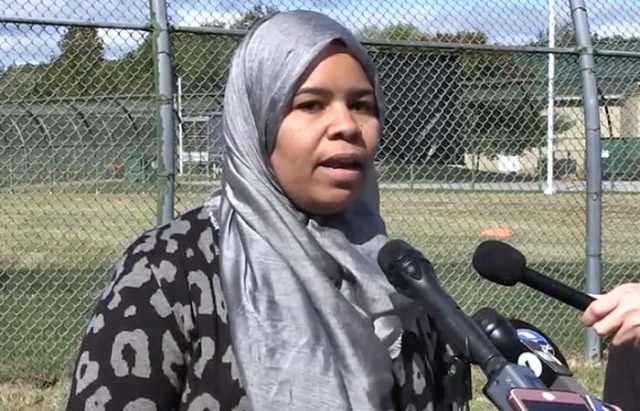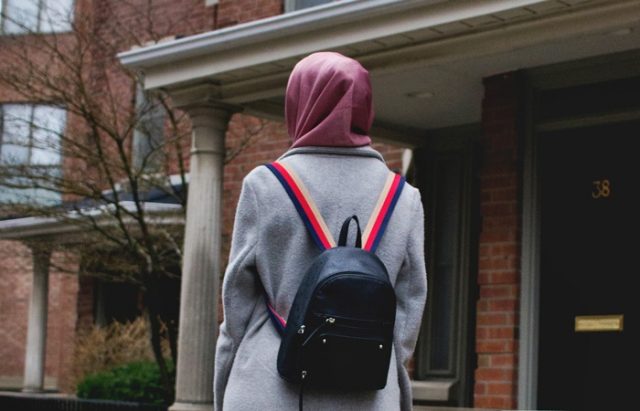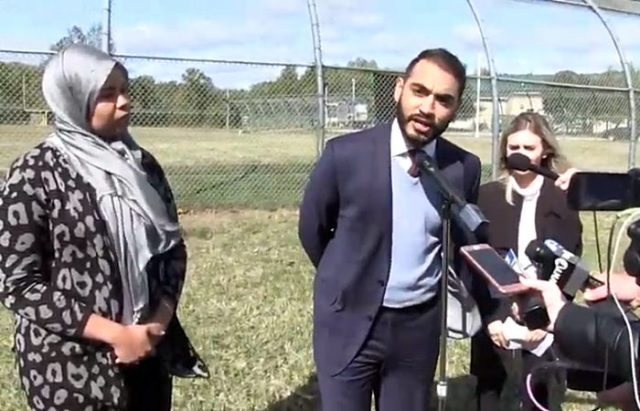After working for several years at a state department, a social worker suddenly arrived at her job in a hijab in accordance with her faith. Unfortunately, she wasn’t expecting her employer’s response.

For years, Madinah Brown served as an employee for the Department of Services for Children, Youth, and Their Families in Delaware. However, thanks to her religious convictions, she has found herself having to decide between following her faith or keeping her job with the state.
When Brown first applied for her position, she was advised by those close to her to forego her Islamic headscarf. While many hijabis would refuse to compromise on their religious compulsions, Brown was willing to remove her scarf in order to get the job she wanted. Fortunately, the move paid off. However, a few years later, Brown decided she didn’t want to follow the rules anymore.
“In 2011, when I applied, I wore it,” Brown explained. “I was told by some family friends that they were going to give me an issue if I came with my hijab. So, when I came on my second interview, I didn’t wear it. I was just trying to provide for my family, so I did take my hijab off and I did work. But in 2015, I didn’t want to cover.”

According to the Council on American-Islamic Relations (CAIR), Brown claims that she was told to remove her hijab while at work, as the scarf was considered a safety hazard. She says that her employer suggested the cloth, which wraps across her neck, could be used to strangle her. Still, she urged her employer to give her an exemption.
“It was in July, 2012. When I first applied in 2011, I came with my hijab on. I was not hired,” Brown said. “I contacted my union to try to do some intervention with the administration. I was told from our director here that I was not allowed to wear my headgear. He sent an email to one of our union reps that that was not allowed. He asked for permission if I was allowed to wear it and he sent them an email and he said no, I’m not allowed to wear my headgear.”
After years of following the dress code, Brown decided she no longer wished to comply. When Brown arrived for work in a head covering, she was given an ultimatum — remove the hijab or clock out and exit the premises, CNN reports.
“This has been very hard for me and my family,” she said. “I just want answers.”

Brown contacted CAIR, which agreed to pursue legal action on her behalf. The organization alleged that the state violated Brown’s civil liberties by refusing to allow her to cover her hair and neck. She also claimed that one of her supervisors accused her of “looking like a terrorist,” referring to her hijab.
“Madinah has been wearing her hijab without incident,” Ghalawanji told CNN. “There are employees who wear lanyards around their necks and another employee who wore a headwrap for a couple of years and wasn’t made to remove that headwrap until they started cracking down on Madinah. It’s just a shame to see a single mother put in a position where she has to choose between her faith and supporting her family.”
The department refuted CAIR’s accusations, releasing a statement defending its policy against certain head coverings. In fact, the spokesperson revealed that the department was even willing to offer Brown a modified version of her hijab in order to allow her to adhere to her faith.
“The situation is more complicated when the safety of our staff and our youth is impacted by a proposed deviation from policy,” the statement said. “We must carefully balance our strong support of religious freedom with the need to keep youth and staff safe. In some instances, a person’s job may require them to do certain actions, such as the physical restraint of a youth, that makes wearing some religious clothing unsafe. In those instances, the Department would entertain alternative or modified clothing, as long as the safety risks are mitigated. We would urge anyone with concerns to follow our accommodation process and make efforts to reach a mutually agreeable and safe compromise.”

Brown told reporters that the state prevented her from performing her job, leaving her without several paychecks. Still, she refused to return to her position unless her employer allows her to work in a headscarf.
While the U.S. is undeniably the most accommodating nation on earth in terms of religious liberties, there will always be duties that require certain manners of dress and behavior in order to be effective and safe. Unfortunately, demanding employers change their rules to accommodate one’s religious compulsions might just have disastrous effects for both the employer and employee.
Source: Tap Worthy Happenings
0 Comments